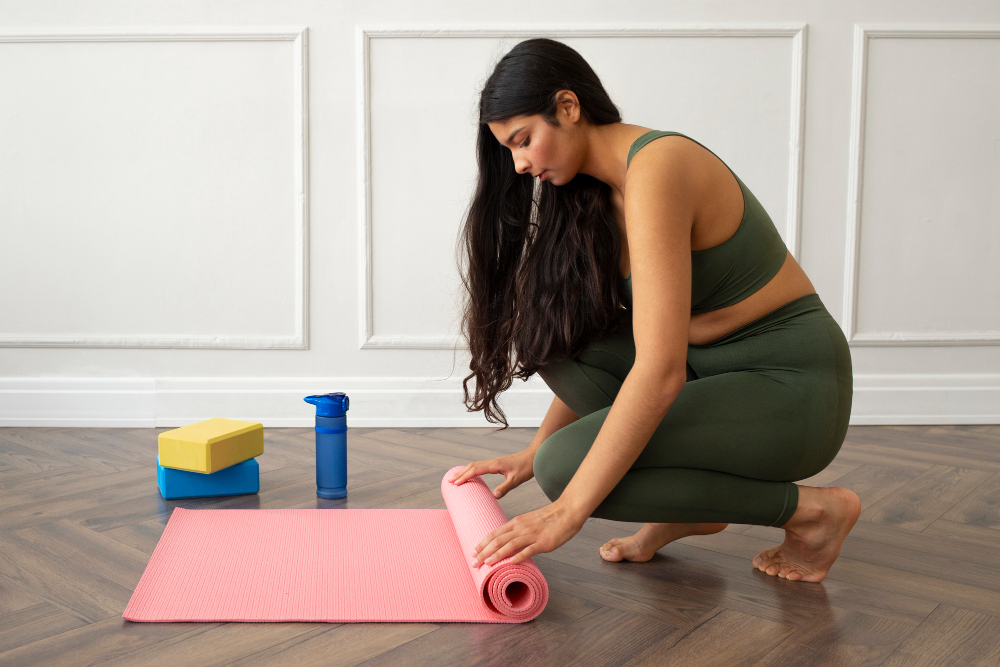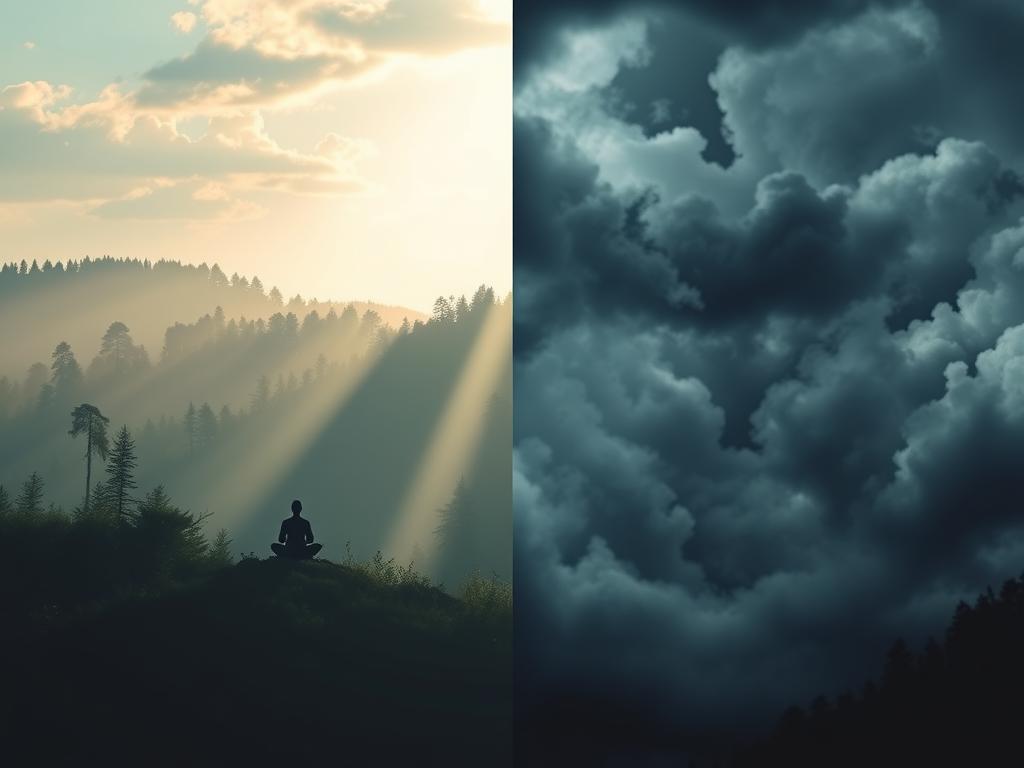Anxiety chills can feel very scary. They make you feel like you’re losing control and can’t connect with your body. I once felt icy tremors up my spine. My teeth chattered and my hands shook a lot. I was very scared and didn’t know how to stop feeling this way1.
But you’re not alone. Many people feel anxiety chills. It’s a scary feeling, but there are ways to calm down. This article will show you how to stop anxiety chills1.
Key Takeaways
- Anxiety chills can cause trembling, shaking, muscle tension, and a feeling of losing control over body temperature and movements.
- Anxiety symptoms like rapid heartbeat, nausea, dizziness, and digestive issues often accompany anxiety chills.
- Coping techniques like deep breathing, progressive muscle relaxation, and mindfulness meditation can help manage anxiety chills.
- Therapy methods such as cognitive behavioral therapy (CBT) and exposure therapy can address the underlying causes of anxiety chills.
- Medications prescribed by doctors can also help alleviate anxiety symptoms, but should be used in conjunction with other treatments.
Anxiety chills and their causes
Anxiety chills happen when you feel cold and shiver a lot. This is because your body’s fight-or-flight response kicks in. It makes you feel hot or cold because of the adrenaline rush2.
What are Anxiety Chills?
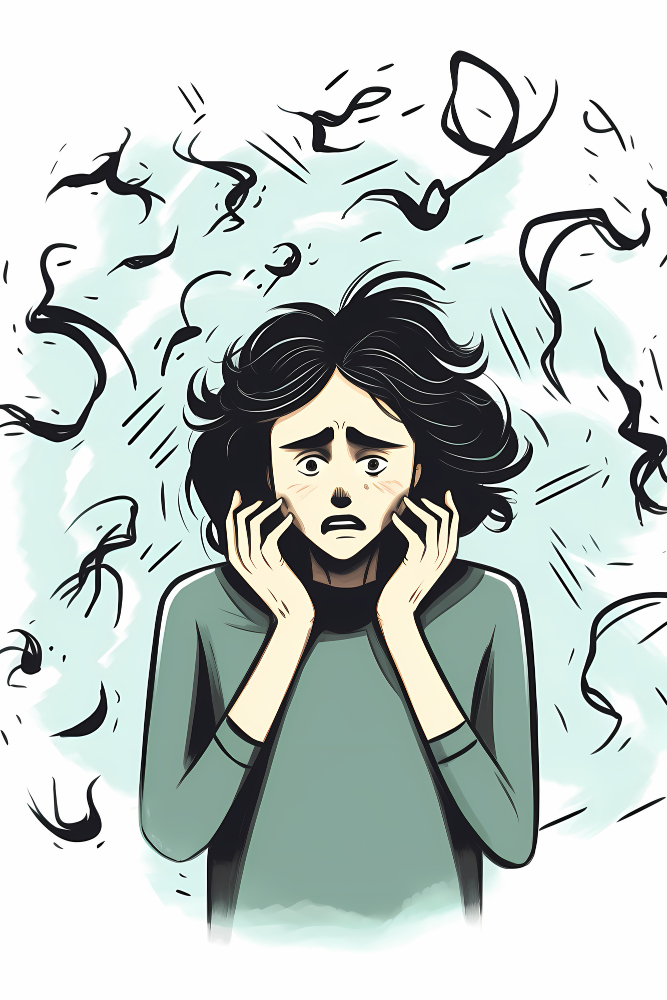
Anxiety shivers are common when you’re really anxious. They can happen during panic or anxiety attacks2. You might feel your hands tingle, your muscles tense, or get chills2.
You might also have a fast heartbeat, feel sick to your stomach, or get dizzy2. Other signs include tightness in your chest and pain2.
The Body’s Fight-or-Flight Response
Anxiety chills are signs of anxiety disorders. They can also show up in social anxiety, generalized anxiety, and PTSD2. The fight or flight response makes you feel like you’re in danger. It releases hormones that make you shiver and feel tense2.
Chills are very common and often caused by anxiety3. When you’re anxious, your body temperature can change quickly. This makes you feel cold3.
Sweat chills happen when you sweat a lot because of anxiety3. The fight or flight response can make some parts of your body feel cooler3. Hyperventilation, which is common in anxiety, can also make you feel cold3.
Chills can be a sign of being cold or a big surprise3. Cold chills are usually harmless and come and go3.
What are the causes of Anxiety Shivers?
Anxiety chills, or anxiety shivers, are common in people with anxiety disorders. They feel sudden coldness, shaking, and trembling. These feelings come from the body’s fight-or-flight response4.
Panic attacks are a big cause of anxiety chills. People with generalized anxiety disorder (GAD), PTSD, and social anxiety disorder also get them. Even phobias can cause anxiety chills when faced with what scares them5.
The body tries to cool down during the fight-or-flight response. This can make you feel cold, shiver, and tremble4. Stress, chemical imbalances, and caffeine use can also make anxiety chills worse5.
| Causes of Anxiety Chills | Explanation |
|---|---|
| Panic Attacks | A hallmark symptom of panic disorder, panic attacks can trigger sudden feelings of intense coldness and shaking5. |
| Generalized Anxiety Disorder (GAD) | Chronic and exaggerated worry and tension can lead to anxiety chills during periods of heightened stress5. |
| Phobias | Irrational fears, such as a fear of public speaking, can trigger anxiety chills when the individual is exposed to the source of their fear5. |
| Chemical Imbalances | Underlying chemical imbalances in the body can contribute to the onset of anxiety chills5. |
| Stress and Stimulant Use | High levels of stress and the use of stimulants like caffeine can also trigger anxiety chills5. |
Knowing why anxiety chills happen is key to managing them. By tackling the root causes, people can ease these symptoms and take back control45.
Related Article: How to Stop Being Addicted to Stress? 5 Easy Ways
How to Stop Anxiety Chills?
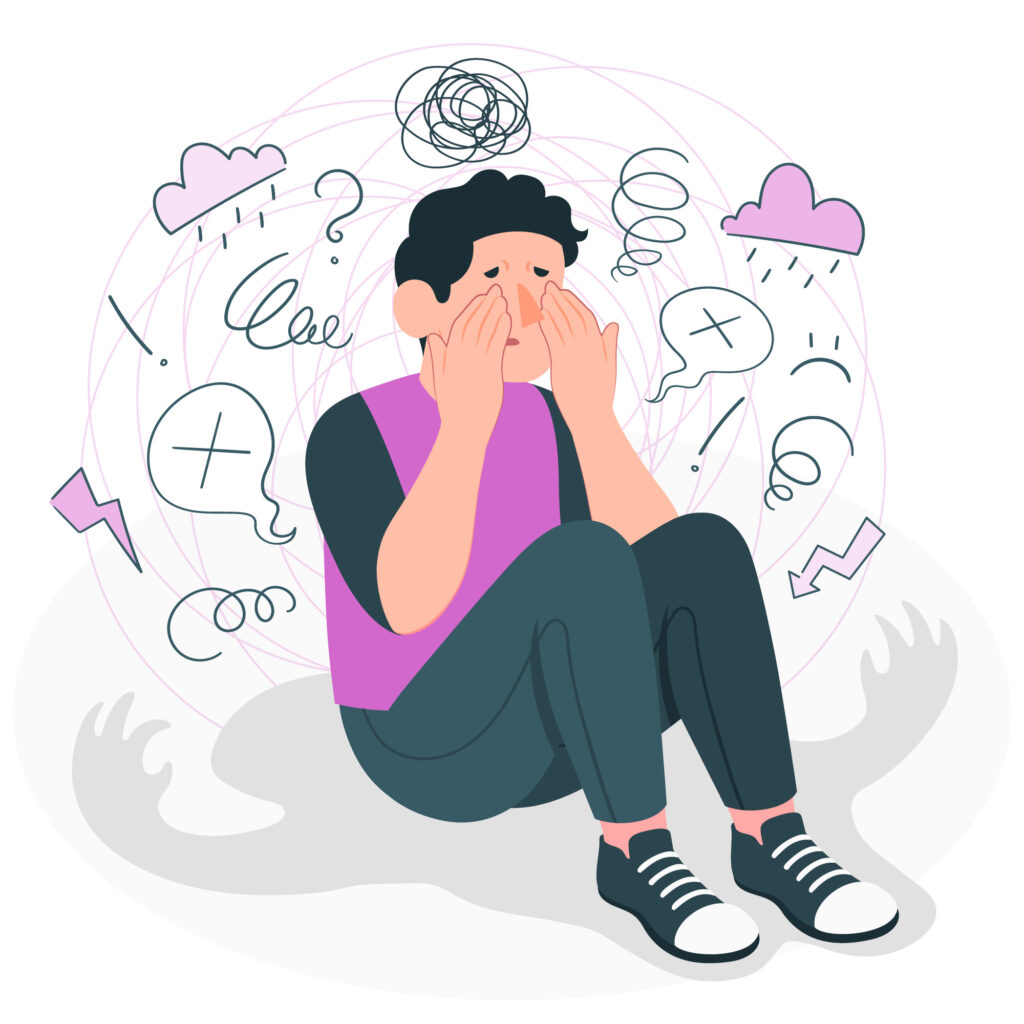
Anxiety chills can feel scary, but there are ways to handle them. You can try relaxation techniques or cognitive-behavioral methods. These can calm your body and mind, making anxiety symptoms less.
Progressive Muscle Relaxation
Progressive muscle relaxation is a common method. It involves tensing and then relaxing different muscles. This can help release tension and bring calm6.
Cognitive Behavioral Therapy (CBT)
Cognitive-behavioral therapy (CBT) helps change negative thoughts and behaviors. It teaches better ways to cope with anxiety. This can reduce both mental and physical symptoms6.
Practice Yoga
Yoga is great for stopping anxiety chills. It combines poses, breathing, and meditation. These can calm your nervous system and reduce anxiety6.
Mindfulness Meditation
Mindfulness meditation is very effective. It teaches you to stay present and accept thoughts and feelings. This can help you handle anxiety better6.
Breathing Techniques
Deep breathing exercises are simple but powerful. They slow down your breathing. This can calm your nervous system and fight anxiety6.
It might take some time to find what works best for you. But with effort and patience, you can manage anxiety chills678.
How long do anxiety chills last?
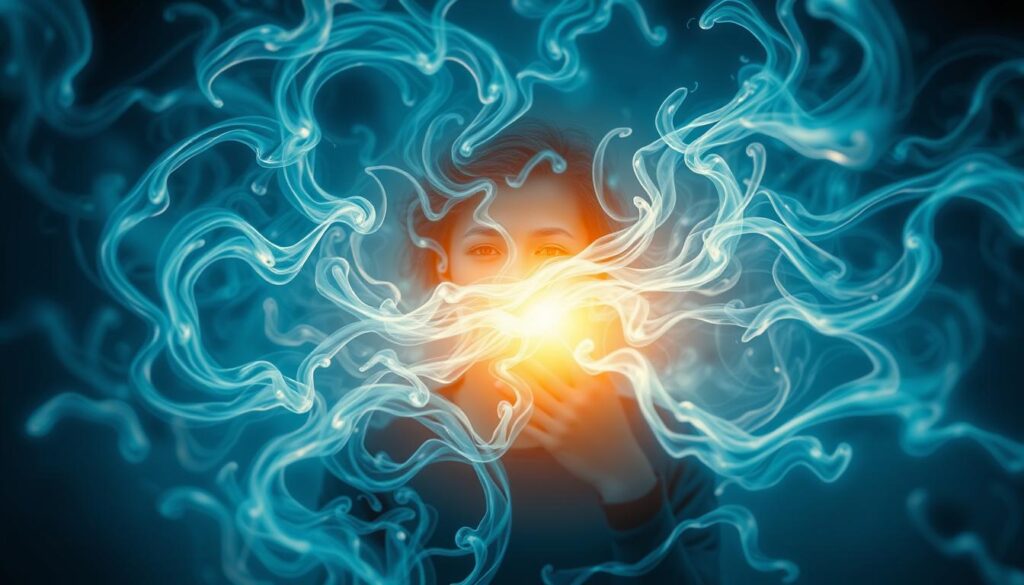
Anxiety chills can be scary, but knowing how long they last can help. These chills happen when you’re stressed or anxious9. They can feel mild or very strong and might make you sweat or shake9.
These chills aren’t about the outside temperature. They’re about what’s happening inside your body9.
When you’re anxious, your body might feel cold because of stress9. Breathing too fast can also make you feel cold9. It’s important to deal with anxiety chills to feel better9.
How long anxiety chills last can change. It depends on how you handle stress and anxiety9. Anxiety can make you worry a lot, which can affect your daily life10.
Dealing with anxiety is key to managing chills. Try relaxation, therapy, yoga, or meditation. These can help you feel better and reduce chills9.
| Anxiety Disorder | Symptoms | Duration of Chills |
|---|---|---|
| Generalized Anxiety Disorder (GAD) | Persistent, uncontrollable worry about various aspects of life | Can last from a few minutes to several hours |
| Panic Disorder | Sudden, intense feelings of fear or anxiety that peak within minutes | Chills may subside as the panic attack passes |
| Social Anxiety Disorder | Intense fear or anxiety in social situations, leading to avoidance | Chills may occur during and after social interactions |
How long anxiety chills last can really vary. It depends on how anxious you are and how you handle it910. Getting help for anxiety is important to feel better and control chills910.
Related Article: How to help with anxiety nausea?
How to stop shaking from anxiety immediately?
Feeling shaky or trembling can be scary, but you can stop it. About 40 million American adults have anxiety disorders. Panic or anxiety attacks can make you shake11.
Stress makes your body react with trembling, twitching, and shaking11.
To stop shaking from anxiety, try these:
- Practice deep breathing. Diaphragmatic and box breathing can calm your heart and brain12.
- Do progressive muscle relaxation. Tensing and releasing muscles can relax you11.
- Do mindfulness exercises. Focus on now and your body to stop shaking12.
- Try yoga poses like child’s pose and sun salutations. Yoga can reduce anxiety and relax you1112.
- Go for a brisk walk or jog. Exercise can release energy and calm you down12.
Finding what causes your anxiety is key. Mental health experts can help with tools like CBT and DBT. They can also suggest medication to manage your symptoms, including shaking1213.
“Laughter can promote longer exhalation, aiding in calming the body and mind during anxiety episodes.”12
| Technique | Description |
|---|---|
| Deep Breathing | Regulates breathing patterns to reduce heart rate and improve brain function during anxiety episodes12. |
| Progressive Muscle Relaxation | Tensing and releasing muscle groups to relieve physical tension and promote relaxation11. |
| Mindfulness Exercises | Focusing on the present moment and physical sensations to ground and alleviate shaking12. |
| Yoga | Poses like child’s pose and sun salutations can reduce anxiety symptoms and promote relaxation1112. |
| Physical Activity | Brisk walking or jogging can help dissipate excess energy and adrenaline associated with an anxiety attack12. |
Using these techniques can help manage anxiety symptoms like shaking. Be kind to yourself as you work through these challenges. With the right strategies and support, you can control your anxiety and feel better1213.
Medications and therapies for severe anxiety
For those with severe anxiety, including anxiety chills, a mix of medicine and therapy is often suggested. Medications for anxiety include benzodiazepines, anxiolytics, antidepressants, and MAO inhibitors14. Therapy for anxiety like cognitive-behavioral therapy (CBT), exposure therapy, and psychodynamic therapy also help manage symptoms15.
Antidepressants, like SSRIs and SNRIs, are often the first choice for treatment options for severe anxiety. They start working in 2-4 weeks and reach full effect in up to 8 weeks15. Benzodiazepines offer quick relief but can cause dependence if used too long15.
Therapy is also key in treating severe anxiety. CBT helps change negative thoughts. Exposure therapy helps face the source of anxiety. Mindfulness-based therapies, like acceptance and commitment therapy, also help manage anxiety15. It’s crucial to work with your healthcare provider to find the best medications for anxiety and therapy for anxiety for you.







